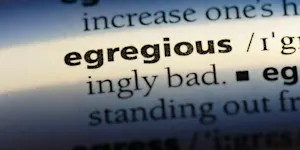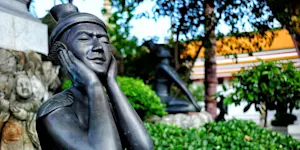What Makes This Word Tick
Tarantism has quite the theatrical flair! It traditionally refers to a psychological illness that was believed to cause an uncontrollable urge to dance, supposedly after the bite of a tarantula. While modern medicine doesn't back this idea, the image of villagers frantically dancing away their troubles is quite the scene!
If Tarantism Were a Person…
Picture a free-spirited artist with an irresistible urge to move to any rhythm, dragging everyone else onto the dance floor! Tarantism would be that person at the party who turns any gathering into a dance-off, bringing joy and a bit of chaos wherever they go.
How This Word Has Changed Over Time
Over the centuries, tarantism has shifted from being viewed as a medical malady to a cultural curiosity and now, largely, a historical anecdote. Its original medical ties have loosened, and today it's more often a footnote in the study of cultural history or an amusing tidbit for trivia nights.
Old Sayings and Proverbs That Use Tarantism
Though tarantism itself isn't featured in any famous sayings, you might hear something like “He’s got the tarantism!” to humorously describe someone who can't stop jittering or dancing.
Surprising Facts About Tarantism
Did you know that tarantism is largely associated with a historical phenomenon in Southern Italy? It was believed that the only cure for the tarantula’s bite was to dance to exhaustion. This led to frenzied music known as the Tarantella, intended to speed up the 'healing' process with its fast tempo.
Out and About With This Word
You might come across tarantism while exploring Southern Italian folklore or in medical history books as a curious case of misdiagnosed hysteria. It's the kind of peculiar word that pops up in documentaries about ancient medical practices or cultural dances.
Pop Culture Moments Where Tarantism Was Used
While tarantism itself hasn't taken the main stage in films or TV shows, its spirit can be seen in any scene where characters are similarly seized by a sudden, uncontrollable urge to dance, often bringing comic relief or highlighting a cultural ritual.
The Word in Literature
Tarantism rarely graces the pages but fits well in historical novels or those with themes of music and cultural customs. Think of literature capturing the lively, chaotic energy of a street festival—or the quirky details in historical romance!
Moments in History with Tarantism
Back in the 15th to 17th centuries, the people of Apulia, Italy, believed dancing to be the remedy for tarantula bites. This spawned the Tarantella dance and local festivals, infused with the vibrancy and eccentricity characteristic of a classic historical episode.
This Word Around the World
While tarantism as a medical condition might be one-of-a-kind to Italy, other cultures have their own dance-induced frenzies. In Germany, people once danced excessively in what was known as St. Vitus Dance. Each version reflects a unique blend of local beliefs and music.
Where Does It Come From?
The term likely derives from the Italian "tarantula," as the dance was believed to counteract the effects of a tarantula's bite. It roots itself in a potent mix of folklore, music, and medieval mythology.
How People Misuse This Word
Tarantism might be mistakenly used to describe any intense desire to dance rather than referencing its more specific historical context or legendary lore tied to tarantula bites.
Words It’s Often Confused With
Tarantula: A type of spider, but only part of the old folklore, not the dance or compulsion.
Tarantella: A lively Italian dance, closely related but distinct from the condition.
St. Vitus Dance: A historical term referring to a disorder causing jerky movements, often confused due to their shared frenzied dance imagery.
Additional Synonyms and Antonyms
While there aren't direct synonyms due to its specificity, it can be loosely related to terms like "mania" or "hysteria" in a historical sense. Antonyms would be calmness or stillness, anything opposite to uncontrollable movement.
Want to Try It Out in a Sentence?
"During the festival, it seemed as though the entire village was seized by tarantism, with everyone dancing wildly to the energetic music."
















